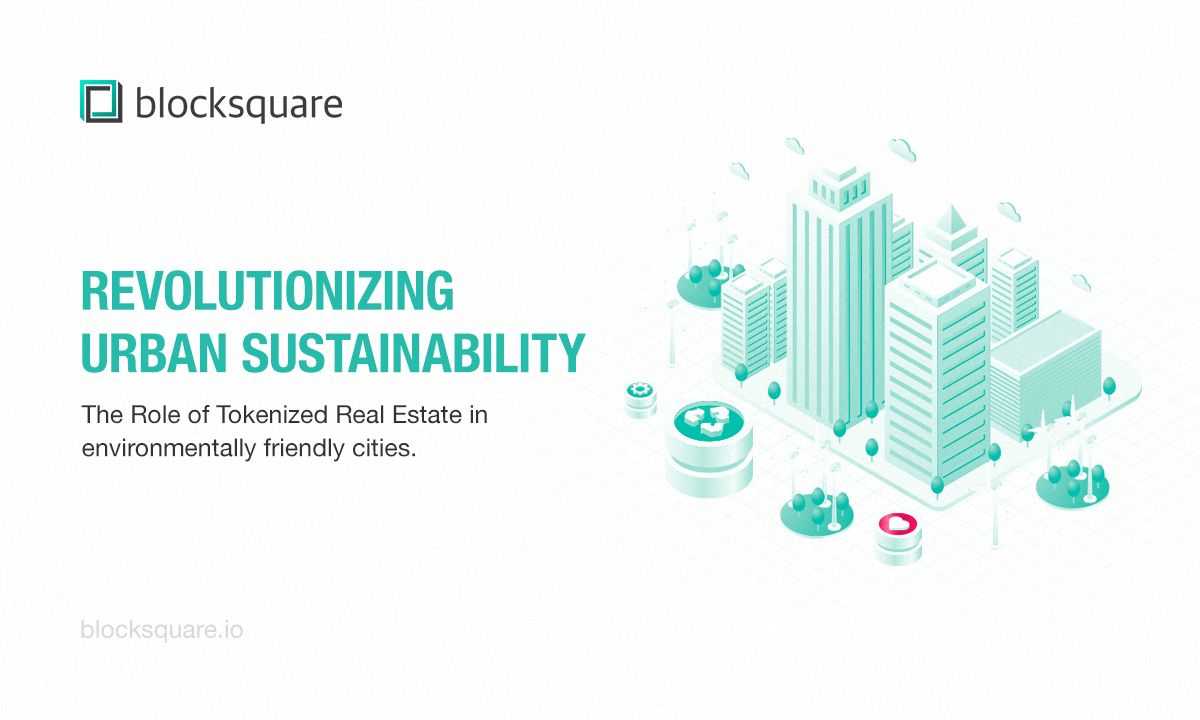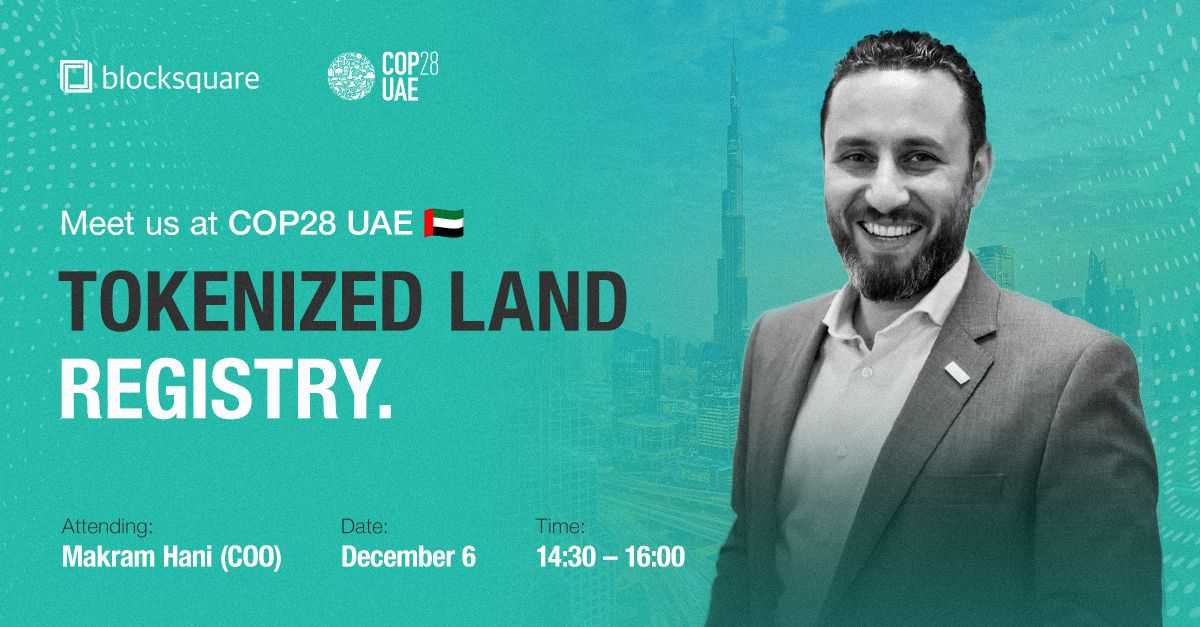Revolutionizing Urban Sustainability
The Role of Tokenized Real Estate in environmentally friendly cities.


As the world grapples with the challenges of climate change and rapid expansion, the need for innovative solutions to build sustainable cities has never been more urgent. In this quest for sustainability, the intersection of advanced technology and urban development takes centre stage. The upcoming COP28 Roundtable, scheduled for December 6th from 14:30 to 16:00, will feature a distinguished speaker, Makram Hani, the COO of Blocksquare, shedding light on a cutting-edge concept – the tokenization of properties – and its potential to transform the landscape of sustainable cities.
Some Context:
Urban areas are at the forefront of environmental and social challenges, from resource depletion to increased carbon emissions. The need to reimagine cities as hubs of sustainability has given rise to discussions around advanced tech solutions that can address these challenges effectively. The focus of COP28's roundtable is to explore how innovations like property tokenization can play a pivotal role in shaping the future of sustainable cities.
Understanding Property Tokenization:
Property tokenization involves the conversion of real estate assets into digital tokens on a blockchain. These tokens represent ownership or investment in a specific property. The utilization of blockchain technology ensures transparency, security, and efficiency in property transactions.
Why Tokenized Real Estate for Sustainable Cities?
Increased Accessibility and Inclusivity:
Property tokenization has the potential to diversify ownership in real estate investment. By breaking down traditional barriers to entry, it allows a broader range of investors, including smaller ones, to participate in sustainable urban development projects. This inclusivity can foster a sense of community ownership and engagement.
Efficiency in Transactions:
The blockchain's decentralized nature streamlines the real estate transaction process. Smart contracts, embedded in the tokens, automate various aspects of property transactions, reducing the need for intermediaries and paperwork. This efficiency can accelerate the pace of sustainable development projects.
Efficiency in property management:
The blockchain, as a decentralized and immutable ledger, plays a pivotal role in property tokenization within rental management. By utilizing blockchain technology, information related to rental properties, transactions, and contracts can be securely stored in a tamper-resistant and transparent manner. Each transaction and update become a block in the chain, providing a verifiable history of events. Incorporating, streamlines operations by reducing paperwork, time and increasing efficiency.
The transparent, inclusive nature of tokenized assets encourages community ownership, creating a sustainable rental ecosystem. This innovation not only transforms how rentals are managed but also aligns with eco-friendly practices, contributing to a more responsible and inclusive approach to property management for all parties.
Liquidity and Flexibility:
Tokenized real estate introduces liquidity to traditionally illiquid assets. Investors can buy, sell, or trade property tokens easily, providing a level of flexibility that was previously unavailable. This liquidity can attract a more dynamic investor base and encourage the constant flow of capital into sustainable projects.
Transparency and Trust:
Blockchain's transparency ensures that all stakeholders have access to accurate and unalterable information about a property. This transparency builds trust among investors, local communities, and government bodies, fostering an environment conducive to sustainable urban development.
Funding Sustainable Projects:
The capital raised through property tokenization can be specifically earmarked for sustainable development initiatives. This targeted funding ensures that urban projects align with environmental and social goals, creating a positive impact on the overall sustainability of the city.
As the world confronts the challenges of building sustainable cities, the integration of advanced tech solutions becomes paramount. Makram's discussion at COP28 promises to unravel the potential of property tokenization in driving urban sustainability. By enhancing accessibility, efficiency, and transparency in real estate transactions, tokenized properties have the potential to revolutionize how we conceive, build, and inhabit our cities. Join us at COP28 for a thought-provoking exploration into the future of sustainable cities through the lens of property tokenization.
We would be delighted for you to apply to become an ambassador for our regional hub ambassador programme if you are interested in furthering sustainability in your city! Apply within - https://oceanpoint.fi/#ambassadors

Event Details:
Date & Time: December 6th, 14:30 – 16:00 Event: COP28 Roundtable Topic: Exploring the Tokenization of Properties for Sustainable Cities Speaker: Makram Hani, COO of Blocksquare